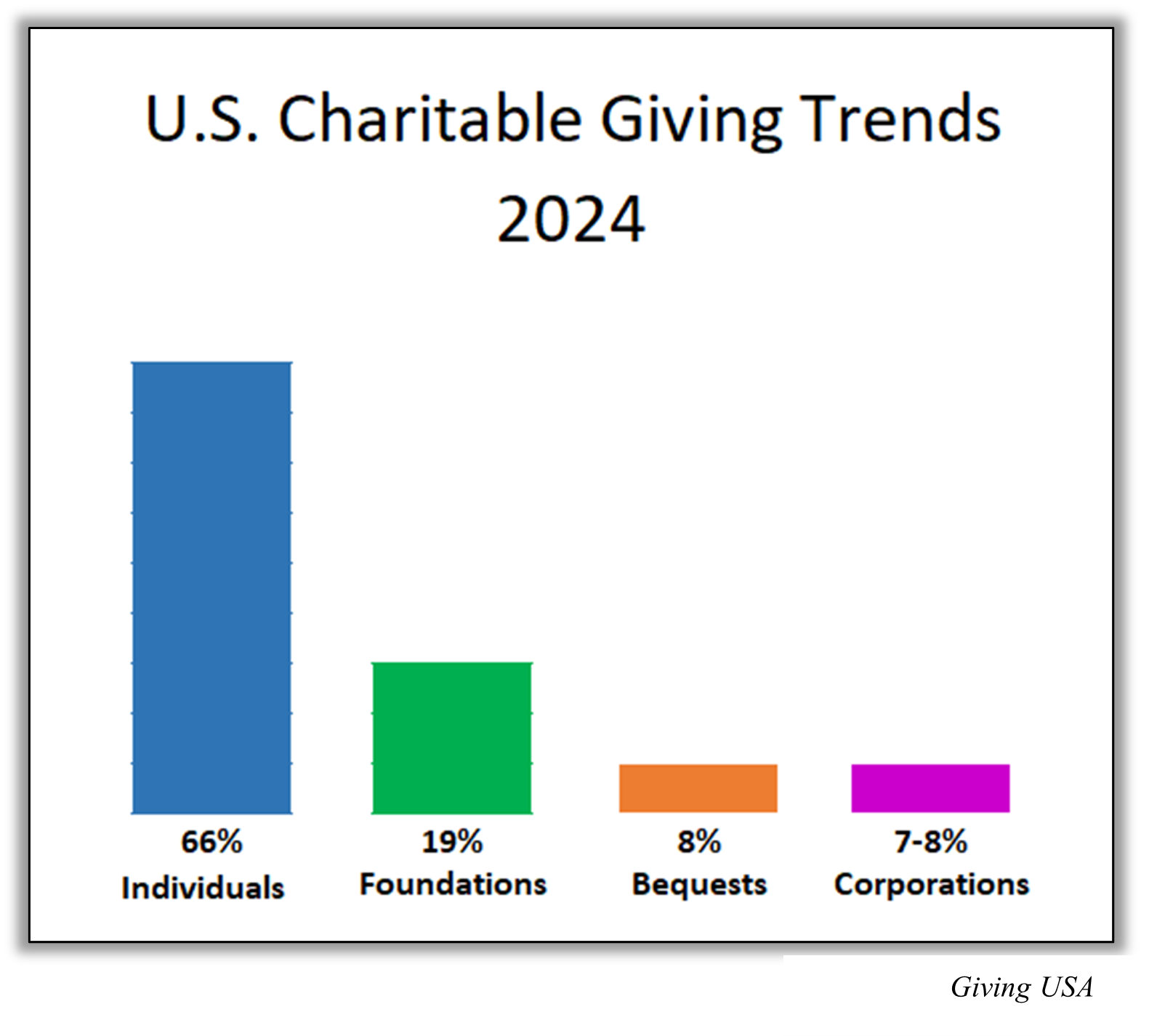Financial Literacy Standards
14. Charitable Giving
Charitable giving is the act of donating money, goods, or time to help those in need or to support causes that benefit the public good. It involves giving voluntarily, without expecting anything of equal value in return, and can take many forms, such as donating to charities, volunteering time, or giving goods like clothing or food.
Section 1: Civic responsibilities
Charitable giving is an important civic responsibility that contributes to the well-being of a society. It goes beyond personal choice and plays a vital role in addressing social issues, fostering community engagement, and supporting critical institutions.
Here's how charitable giving aligns with civic responsibilities:
- Supporting public good
- Charitable giving provides essential resources for organizations working to address societal challenges, such as poverty, education, healthcare, and environmental protection.
- By contributing to the provision of public benefits, charitable giving helps ensure a basic quality of life for everyone in the community.
- Promoting civic engagement
- Supporting charities can foster civic engagement by allowing individuals to actively participate in addressing social problems and advocating for positive change.
- Giving to causes you care about strengthens your sense of connection to the community and provides a meaningful way to contribute to its improvement.
- Building and strengthening communities
- Charitable acts, whether through financial donations or volunteering time, create social connections and a sense of unity among community members.
- Engaging in community-based initiatives, such as volunteering at food banks or participating in clean-up drives, builds stronger communities and addresses local needs.
A. Why do individuals engage in charitable giving?
Individuals engage in charitable giving for a variety of reasons, encompassing both personal motivations and the desire for broader societal impact.
- Personal reward and fulfillment
- The act of giving can have a profound impact on the giver by triggering positive feelings and emotional well-being.
- Donating time or resources can boost self-esteem, improve life satisfaction, and provide a greater sense of purpose, particularly for older adults engaging in meaningful volunteer roles.
- Research indicates that giving back may be associated with increased longevity and improved physical health, potentially due to lower stress levels and a greater sense of purpose.
- Community improvement and social impact
- Donors are often driven by the desire to make a concrete impact and see the positive outcomes of their contributions in their local communities.
- Giving to charities that align with personal values fosters a sense of purpose and connection with like-minded individuals, building stronger communities and social networks.
- Acts of generosity can inspire others to give back, creating a ripple effect of positive change and fostering a culture of giving within families, workplaces, and communities.
- Tax deductions and financial benefits
- Individuals and businesses can reduce their taxable income by deducting charitable contributions to qualified organizations, potentially lowering their overall tax burden.
- Donors can get bigger tax breaks by being smart about how they donate. Donating a larger lump sum in a single year can allow for itemized deductions and potential tax savings.
It is important to note that individuals are often motivated by a combination of these factors, and the specific reasons for giving can vary depending on personal experiences, values, and the nature of the charitable cause.
B. Compare various ways you can donate
Individuals can donate to charities through various means, each with its own advantages and considerations.
- Monetary gifts (cash donations)
- Donating money is the most common form of donation, via check, credit card, or bank transfer.
- Advantages:
- Flexibility for charities: Allows organizations to allocate funds where they are most needed.
- Simplicity for donors: This is a straightforward process with tax benefits often available.
- Disadvantages:
- Potential for misuse: Donors may have concerns about transparency and how their funds are being utilized.
- Impact of transparency: Difficult to trace the direct impact of individual monetary donations.
- Gifts in kind (non-cash donations)
- Donations can include goods, services, or expertise instead of money.
- Advantages:
- Direct impact: Can fulfill a charity's needs and reduce their operational costs
- Sense of real contribution: May be appealing to donors who prefer to see their contributions directly utilized.
- Disadvantages:
- Challenges for charities: May require resources for sorting, storing, or distributing donated items.
- Not all items are needed: Charities may receive unusable or irrelevant items.
- Volunteer service
- Donating time and skills to support a charity's mission or cause, often through hands-on activities.
- Advantages:
- Direct involvement: Provides a deeper connection to the cause and a sense of personal fulfillment.
- Skill development and networking: Can offer opportunities to learn new skills, build connections, and gain career experience.
- Disadvantages:
- Time commitment: Can be demanding and require significant time investment.
- Potential for burnout or emotional strain: Especially when working with vulnerable populations.
C. How can charitable giving fit into your spending plan?
Charitable giving can be effectively integrated into your spending plan by treating it like any other essential expense, such as housing or food. By allocating a specific amount for donations, you can ensure consistent contributions to your chosen causes while maintaining financial stability. This approach allows you to align your giving with your broader financial goals.
Here's a more detailed breakdown:
- Budgeting for Giving
- Establish a giving category in your budget. Include charitable donations as a distinct line item in your budget, just like you would for utilities or groceries.
- Determine your giving capacity by assessing your income and expenses to decide how much you can comfortably donate each month or year without compromising your other financial obligations.
- Track your giving by monitoring your donations to ensure they align with your budget and to track your progress towards your goals.
- Optimize Charitable Giving
- Tax advantages allow you to explore the potential tax deductions associated with charitable donations.
- Bunching donations from multiple years into one will allow users to exceed the standard deductions on their tax return to maximize tax benefits.
- Making Giving Sustainable
- Start small by beginning with a manageable amount and gradually increase your giving as your financial situation improves.
- Consider Recurring Donations
- Set up recurring monthly or quarterly donations to your chosen charities to ensure consistent support.
By incorporating charitable giving into your overall financial plan, you can make a positive impact on the causes you care about while achieving your financial goals.
Section 2: Importance of Charitable giving
Charitable giving is vital for creating a positive impact on society and individual well-being. Beyond the immediate benefit to the recipients, studies show that donating or volunteering can boost happiness, reduce stress and anxiety, and even improve physical health and longevity for the giver. Charitable donations empower communities, fund crucial research, support essential services, and address critical needs that might otherwise go unmet.
A. Understanding the impact of charitable giving on the recipient
Charitable giving can have a significant and multifaceted impact on the individuals and communities receiving the gifts.
- Improved quality of life
- Charitable giving provides essential resources like food, shelter, healthcare, and education to those in need.
- Donations can fund scholarships, job training, and other programs that unlock opportunities and assist in long-term self-sufficiency.
- Support for healthcare initiatives, research, and access to care improves individual and community health, both physically and mentally.
- Emergency relief
- In times of crisis, charitable giving provides crucial resources for rescue, recovery, and immediate needs like food, water, and temporary shelter.
- Charitable organizations play a vital role in recovery efforts, coordinating with volunteers, distributing aid, and helping communities rebuild.
- Charitable giving can support local projects and initiatives, creating jobs, stimulating economic activity, and enhancing the overall financial health of communities.
B. Analyze the impact of charitable giving on the community
Charitable giving plays a crucial role in building stronger communities and improving the overall quality of life for residents.
- Local economic impact
- Charitable donations to local nonprofits can generate a significant economic ripple effect within the community, with some sources suggesting a $3 return for every $1 contributed.
- Nonprofits create jobs directly through their operations and indirectly by stimulating local businesses.
- Donations that prioritize long-term self-sufficiency and empowerment within the community have a more profound and lasting impact on development.
- Improved standard of living and social well-being
- Nonprofits address the needs of vulnerable populations and provide essential services like food, shelter, healthcare, and education, particularly when government programs are overwhelmed.
- By investing in educational initiatives, providing access to basic needs, and supporting small businesses, charitable funds can help individuals and families achieve self-sufficiency.
- Charitable activities provide a sense of belonging, unity, and shared responsibility among community members, creating a healthier and more vibrant social atmosphere.
- Charitable giving can inspire others to contribute, creating a ripple effect of positive change that benefits the entire community.
Section 3: Evaluating the authenticity of charitable organizations
To ensure your charitable donations are genuinely making a positive impact, it's essential to evaluate the authenticity of organizations. This involves a multi-faceted approach, leveraging information from watchdog organizations and government agencies to verify how funds are used, who benefits, and what activities they engage in.
Here's how to evaluate the authenticity of charitable organizations:
- Check for official registration and tax-exempt status
- Verify the organization's 501(c)(3) status with the IRS to confirm they are officially recognized as tax-exempt. This means your donation will be tax-deductible.
- Many states require charities to register with a state agency before soliciting donations. Check your state's charity database to ensure the organization is properly registered.
- Utilize reputable charity watchdog organizations
- Organizations like Charity Navigator, Candid, and the BBB Wise Giving Alliance offer valuable insights into a charity's practices.
- Charity Navigator: Evaluates charities based on financial health, accountability, and transparency.
- Candid: Provides in-depth profiles with information on a nonprofit's mission, impact, finances, and programs.
- BBB Wise Giving Alliance: Assesses charities against 20 standards of accountability encompassing governance, finances, fundraising, and effectiveness.
- Review financial transparency
- IRS Form 990: These forms provide detailed financial information about the organization's revenue, expenditures, and accomplishments.
- Analyze Financial Ratios: Look for the program expense ratio (percentage of funds spent on programs) and fundraising efficiency (cost to raise each dollar). Reputable charities typically allocate a high percentage of their budget towards programs (often 65% or more).
- Access Financial Statements: Look for detailed information on the company’s website on how they manage funds and how donations are allocated to programs.
- Evaluate programs, recipients, and activities
- A legitimate charity should have a clear mission statement that defines their purpose, goals, and intended beneficiaries.
- Look for measurable goals, outcomes, and evidence of the charity's impact through statistics, case studies, or success stories.
- The charity should be transparent about who they are helping and how they are carrying out their programs and activities to achieve their mission.
- Check for independent evaluations or studies that assess the effectiveness of their programs.
- Look for donor feedback
- Reputable platforms like Charity Navigator and the BBB Wise Giving Alliance often include donor reviews and feedback.
- Search online for the charity's name along with terms like "complaints" or "scams" to uncover potential issues or concerns.
By taking the time to research and evaluate charities using these methods, you can make informed giving decisions and support organizations that are genuinely making a difference.




